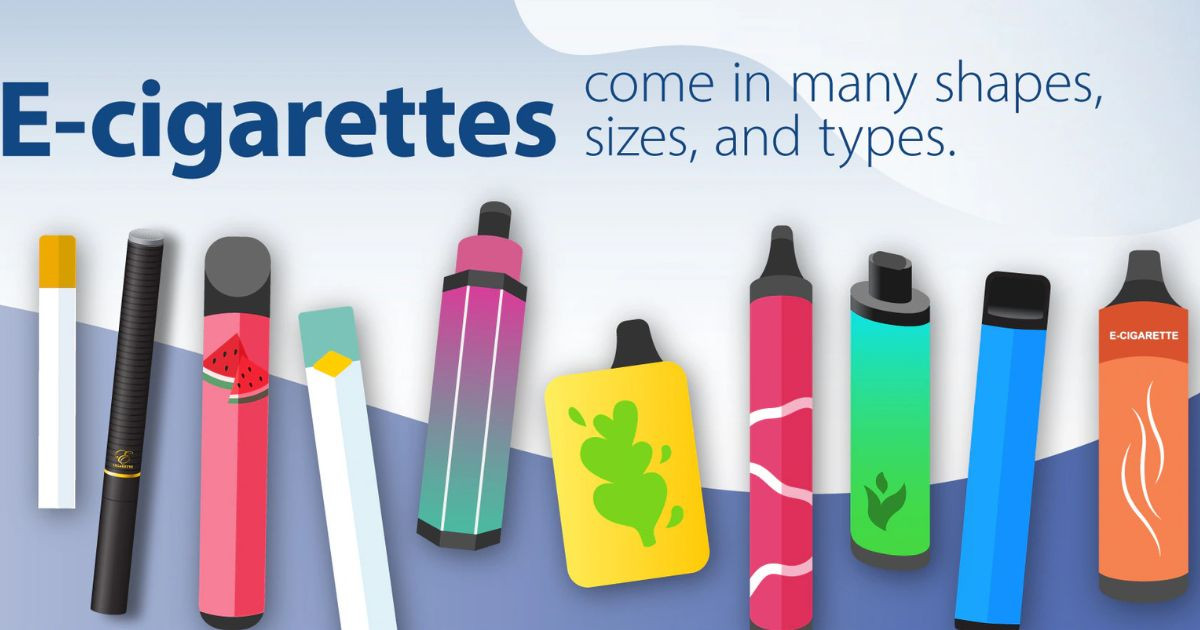Death blow to e-cigarettes in Bangladesh!
Decision taken to ban import of the novel tobacco product
Ehsanul Haque Jasim, Dhaka
Published: 13 Dec 2024

Photo Courtesy: cdc.gov
In a significant move to protect public health, the interim government has decided to ban the import of e-cigarettes and electronic nicotine delivery systems (ENDS).
The decision aligns with the global trend as over 50 countries, including neighbouring India, have imposed a similar type of ban -- either on possession, use, sale or import -- on the novel tobacco product.
It is now going to be included in the list of prohibited items in Bangladesh under the Import Policy Order.
The decision was made in a meeting of the Council of Advisers held on Thursday at the Chief Adviser's Office with Chief Adviser Prof Muhammad Yunus in the chair.
After the meeting, the Cabinet Division disclosed the key decisions, saying e-cigarettes will be included in the commerce ministry's list of import-prohibited products.
The meeting also discussed the draft of the 'Cyber Security Ordinance, 2024'. It was decided that the draft will be resubmitted for final approval after further review.
The Council of Advisers congratulated the Bangladesh Under-19 cricket team for retaining the Asia Cup title for the second consecutive time, expressing optimism that they will achieve even greater success in the future.
Anti-tobacco activists and advocates, and public health experts welcomed the government's move to ban the import of e-cigarettes, saying it is tantamount to banning the use, sale and marketing of this tobacco product.
"Since e-cigarettes are not produced in the country, their widespread availability in Bangladesh relies on import. A ban on the import will automatically eliminate the use, sale and marketing of e-cigarettes," said Syed Mahbubul Alam, a public health and environment policy expert.
Talking to the Daily Sun, he said after the imposition of the ban on imports, the relevant government agencies should take legal measures to stop the sale and marketing of e-cigarettes. “Because if e-cigarettes or vaping products are sold anywhere, it must be assumed that they’re imported illegally.”
There was no legal framework to import and market e-cigarettes in Bangladesh. There was no legal order regarding e-cigarette import before 2018.
Allowing the import of e-cigarettes is a process of legalising the product on the one hand; paying taxes and duties paves the way for the tobacco industry to expand the new tobacco product in the country on the other hand.
"The tobacco industry could highlight the argument that e-cigarettes will play a vital role in the country's economy. The ban has closed the door for argument," said Syed Saiful Alam Shovan, a researcher on e-cigarettes.
The Smoking and Using of Tobacco Products (Control) Act, 2005, which was updated in 2013, does not address e-cigarettes. As the sale of e-cigarettes is not regulated, its sale is 'allowed' indirectly. The loopholes in the law pave the way for the tobacco industry to obtain legitimacy of the e-cigarette business by applying various tactics. Alongside the import of global brands, trademark registration is another tactic for legalisation.
Banning import will help prevent tobacco companies from misusing the tobacco control law, Shovan said.
The tobacco industry introduced e-cigarettes in Bangladesh just years after they were introduced in the global market in 2006.
According to an estimate in 2016, the number of e-cigarette users in the country was about 2 lakh. Officials of the National Tobacco Control Cell estimate that the number has already crossed hundreds of thousands, a large part of which is underage youth.
According to a survey titled 'Bangladesh tobacco industry tactics for novel product expansion', there were no e-cigarette shops in Dhaka city just a few years ago.
Previously, most e-cigarette shops were found in posh areas of the capital city, particularly Gulshan and Banani, just after the arrival of the novel product in Bangladesh.
Now, e-cigarette shops are found everywhere in Dhaka and other cities, towns and even in the remote areas across the country.
The study found that only around 22% of the 50 outlets have been selling e-cigarettes for five years or a little more after 2016. The remaining 78% of the e-cigarette outlets surveyed in Dhaka started selling within five years, and have been selling e-cigarettes for less than five years.
The e-cigarette products of various brands come from China, the US, the UK, Germany and Malaysia. According to the field-level survey, the majority of the imported vaping products come from China. There are at least 32 e-cigarette and e-liquid brands that the study found.
Prof Dr Golam Mohiuddin Faruk, a cancer specialist and president of the Bangladesh Cancer Society, welcomed the government's decision, saying it comes amid growing concerns about the rising use of e-cigarettes, especially among the youth.

